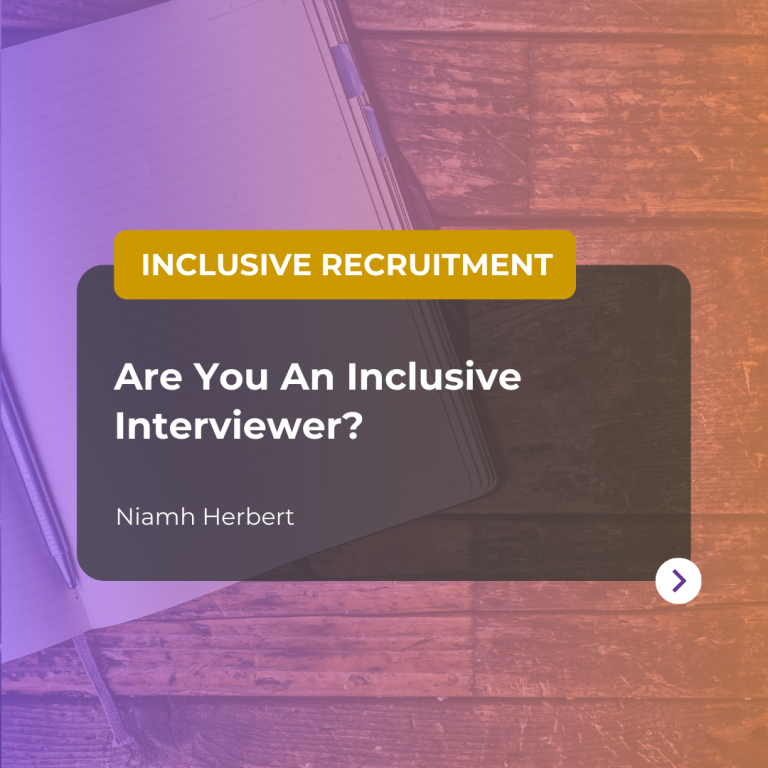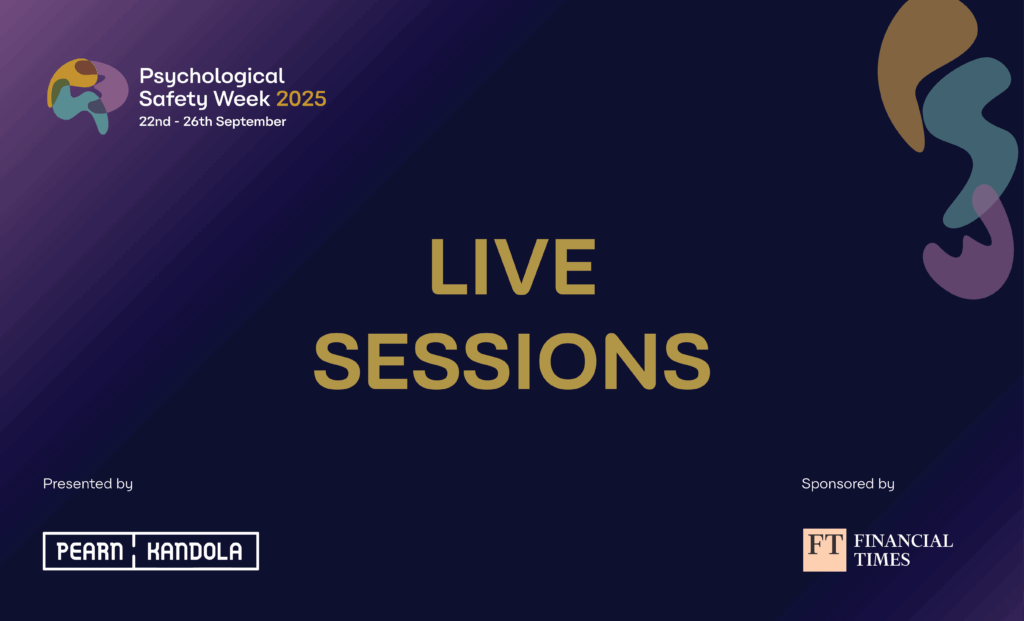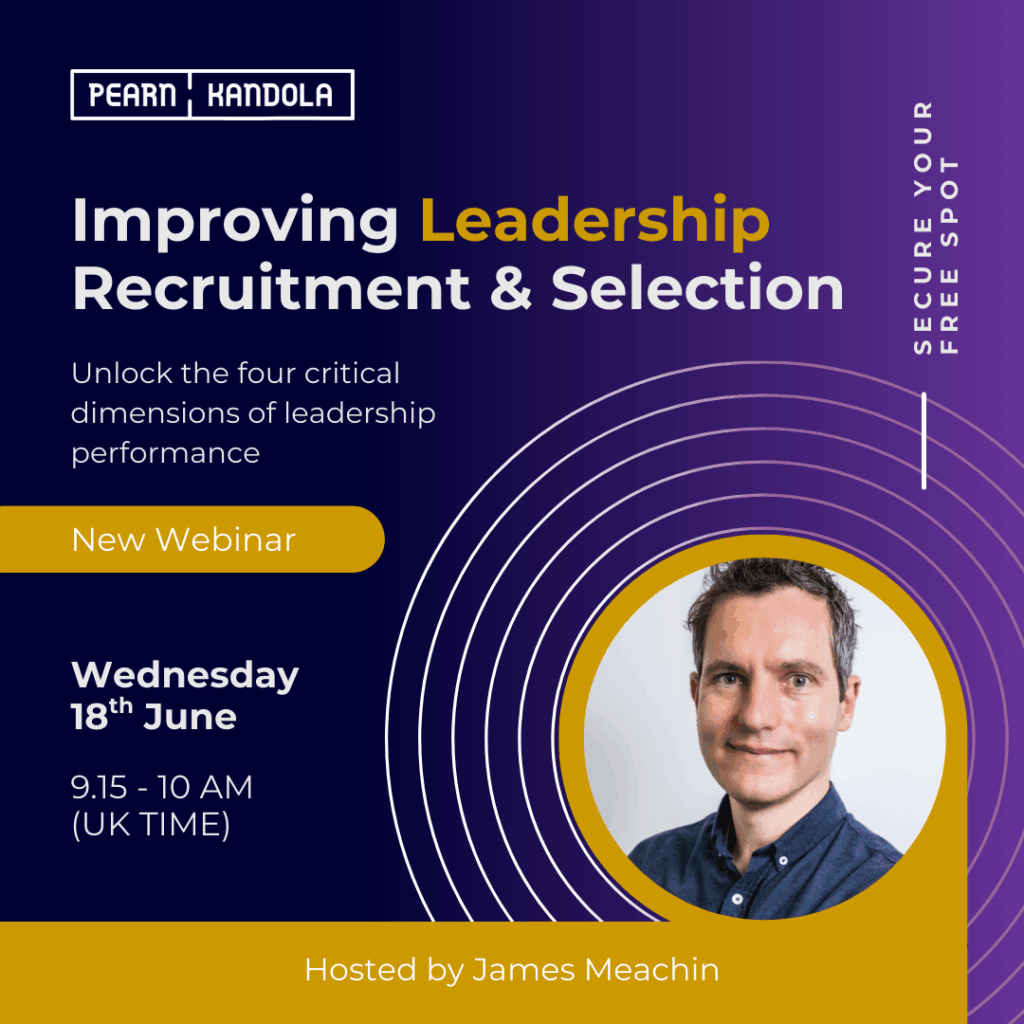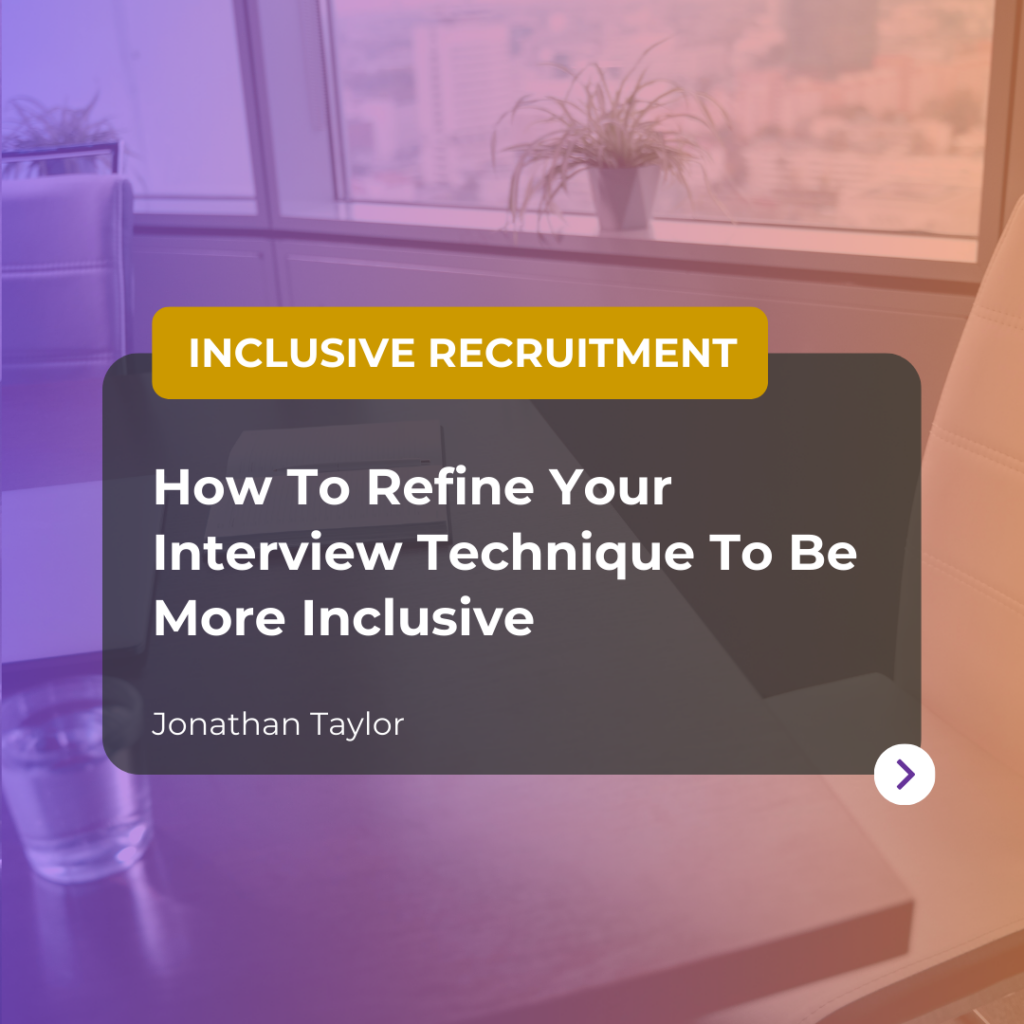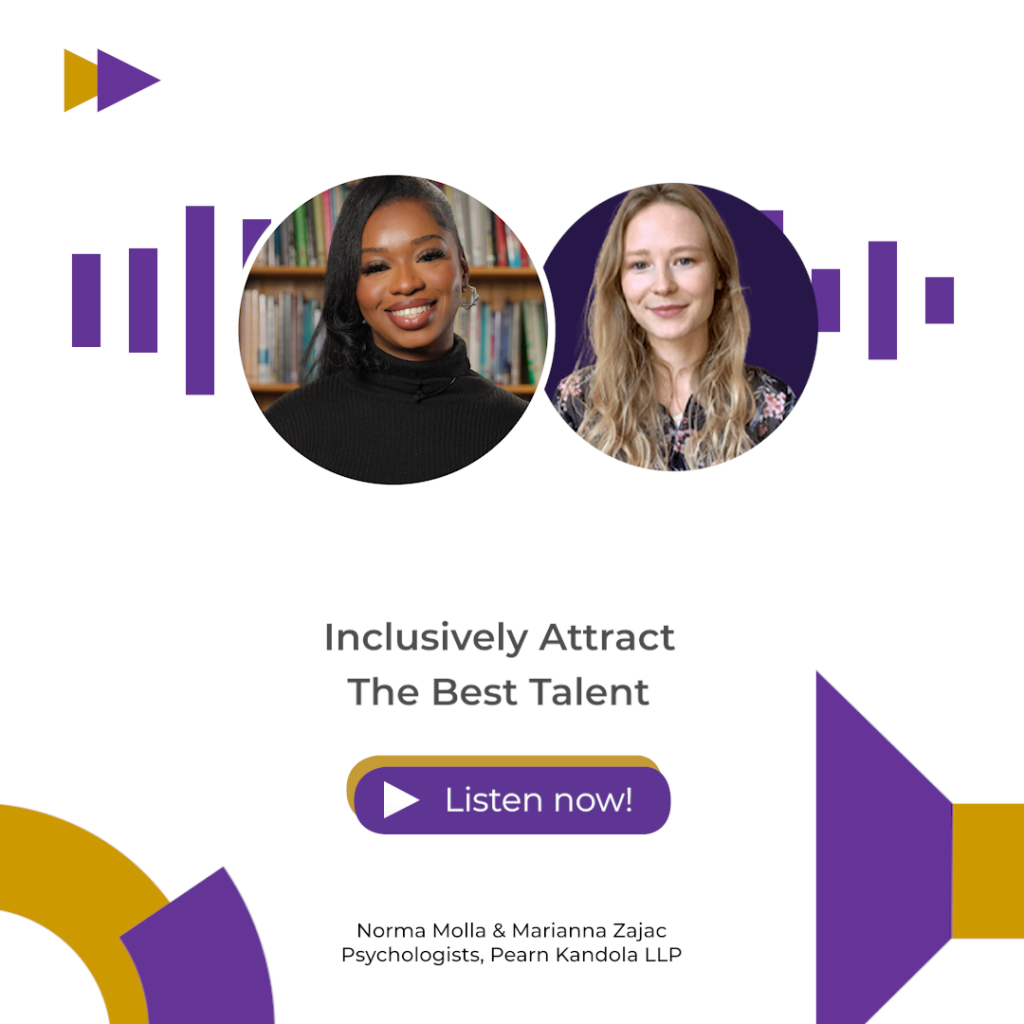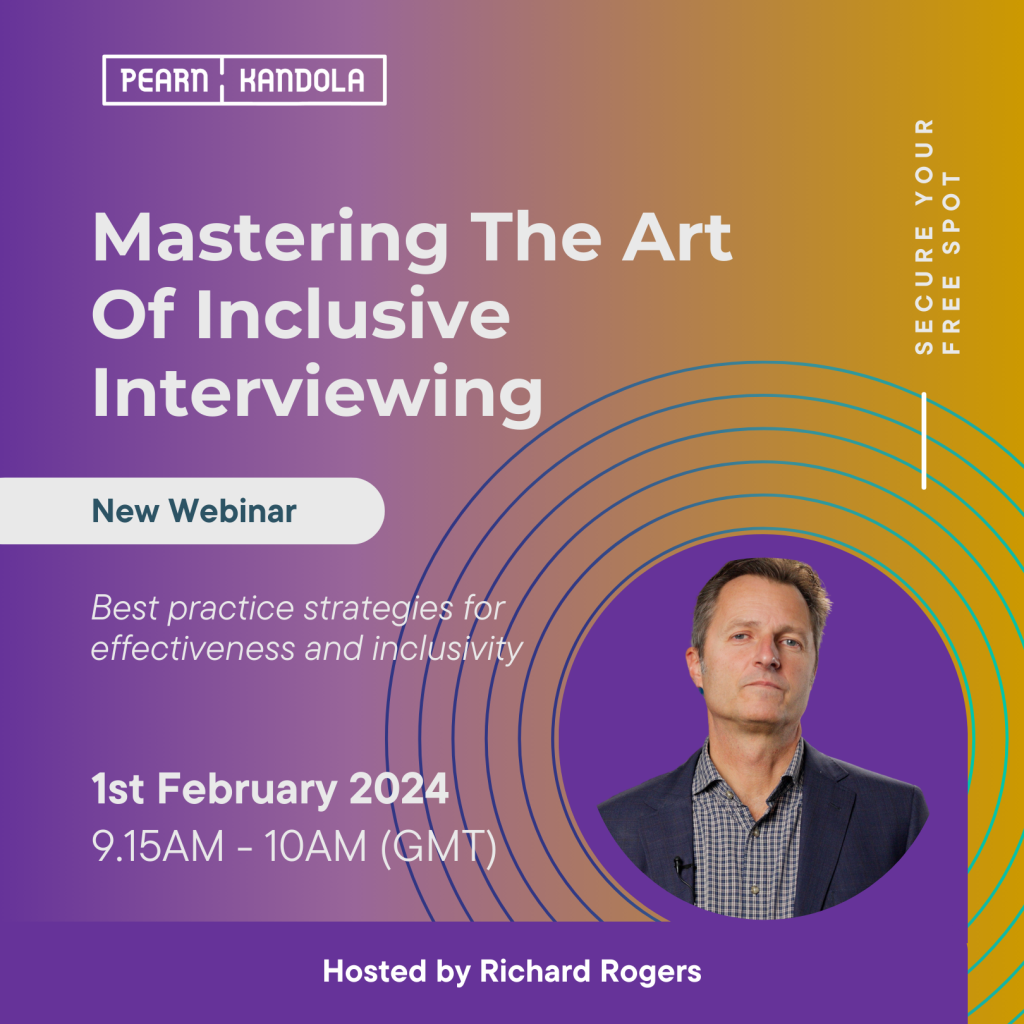Placement student Niamh Herbert distils a recent webinar from Principal Psychologist Richard Rogers, focusing on mastering the art of inclusive interviews, into her latest article.
Inclusive interviewing is fundamental for attracting the top talent in your industry. It involves removing barriers and reducing unconscious biases that are potentially affecting your hiring decisions.
This article will cover:
- Why Should Inclusivity be Central To Interviews?
- 5 Common Biases Seen in Interviews
- Things You May Think are Good Interview Practice – But Aren’t Necessarily
- 5 Easy Changes You Can Make To Interview More Inclusively
Why Should Inclusivity be Central To Interviews?
Inclusivity should be a fundamental consideration during interviews. Bias, prejudice, and exclusion will lead to a lack of objectivity, clouded judgments, and potentially contribute to a poor corporate reputation.
Valuing differences enables everyone to thrive to their highest potential at work. As well as this, welcoming different experiences and ideas can boost your reputation, as you are showing an organisational effort and commitment towards equal opportunities.
It essentially means removing subjectivity from the process, so that you – as well as your candidates – can feel confident that the best decisions are being made, based on core competencies for the role.
Beyond interviews, inclusive practices and policies must be embedded within your organisation. This will lead to a culture that is vibrant with creativity, diversity of thought and innovative ideas and solutions.
Inclusivity can lead to employees feeling valued and engaged, improving their mental and physical health. This will in turn positively affect job performance, satisfaction and talent retention rates.
5 Common Biases Seen in Interviews
Ensuring interviews are consistent, fair, and objective for each candidate is crucial. Many biases can slip into our typical interviewing process if are unaware of them, having a significant impact on the organisation and candidates. Biases can include:
- Affinity Bias
This is the tendency to prefer individuals with similar backgrounds, personality traits, or beliefs as ourselves.
During interviews, these can sway your opinion before the interview has even begun. This could include seeing on their CV they went to the same university as you, have similar personality characteristics, or even hobbies in common.
- Confirmation Bias
This means that we search for, interpret and favour information that supports our prior beliefs or attitudes.
This can occur for example when we have had a good recommendation given about a candidate, meaning that our objectivity is hindered before we meet with them.
- Contrast Bias
This is a form of unconscious bias that happens when we judge two things against each other, rather than assessing them individually.
During interviews, we can compare candidates to each other, rather than focusing on how each marks against the criteria or set competencies.
- Stereotypes
These involve forming generalised thoughts and opinions about a person based on a social group they may belong to. These can inaccurately inform our decision-making, leading to exclusion.
This could be, for example, a stereotyped view that “all women would prefer a desk job.”
- Primacy / Recency Bias
This bias can lead to interviewers finding it easier to recall the first and last moments of the interview. This means that information from the middle of the interview can frequently get lost or forgotten.
This is an example of why note-taking is so important, catching key comments the candidate says to refer to during the evaluation later.
Things You May Think Are Good Interview Practice – But Aren’t Necessarily
A typical solution to overcoming bias during interviews is to introduce a panel format. This is where two or more employers conduct the interview, allowing people from different departments to be involved.
However, it is vital to acknowledge that this doesn’t automatically remove biases. The ‘similar-to-me-effect’ can still occur, in addition to groupthink. This is defined as a phenomenon that happens when people reach conclusions without critical reasoning or evaluation.
If a decision was made, and it seemed a bit too easy, this could indicate that groupthink had occurred. As a group, you may have avoided challenging each other’s ideas or considering alternative options.
Furthermore, tokenism can be a result of organisational efforts to increase diversity. This is when decisions are made for symbolic reasons, such as promoting a woman or hiring an ethnic minority candidate with the sole intention of appearing more diverse.
It is about the intention behind the decision. If the individual has the skill set, qualifications and expertise needed, then they should be hired regardless of their race, gender or any other minority group.
5 Easy Changes You Can Make To Interview Inclusively
- Questions not decisions
Reframe interviews to ask questions, with a focus on gathering information about the candidate. It is not a time to make decisions during the interview.
- Structure your interview
Ensure questions are clear and relevant to the assessment criteria for the role. This will create consistency between candidates, increasing the validity of comparisons. Establish a systematic scoring system and check that the length of the interview is realistic to avoid missing sections in a hurry.
- Avoid HALT conditions
These are risky states that impact decision-making. They traditionally stand for when an individual is Hungry, Angry, Lonely, or Tired. But can also include being in a hurry, anxious or late. The presence of any of these warning signs suggests that performance and inclusivity will suffer.
- Prior Unconscious Bias training
Ensure unconscious bias training is carried out before interviewing candidates. This can lead to an increase in your self-awareness, allowing you to consciously adjust your approach and perceptions. These will lead you closer to objective, inclusive judgments to help you uncover the best talent.
- Preparation
Ensure you, as an interviewer, have time set aside before the interview to read through the questions, as well as having time after to evaluate their performance. In addition, make sure to make time for any reasonable adjustments that may be needed, and ensure other meetings aren’t scheduled too closely that could clash with the interview time required.
Looking to improve inclusion in your recruitment?
Whether through inclusive interview skills training or candidate screening design, get in touch to discuss our inclusive recruitment services via info@pearnkandola.com.
